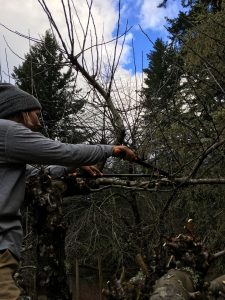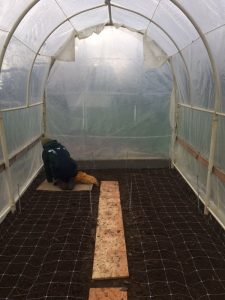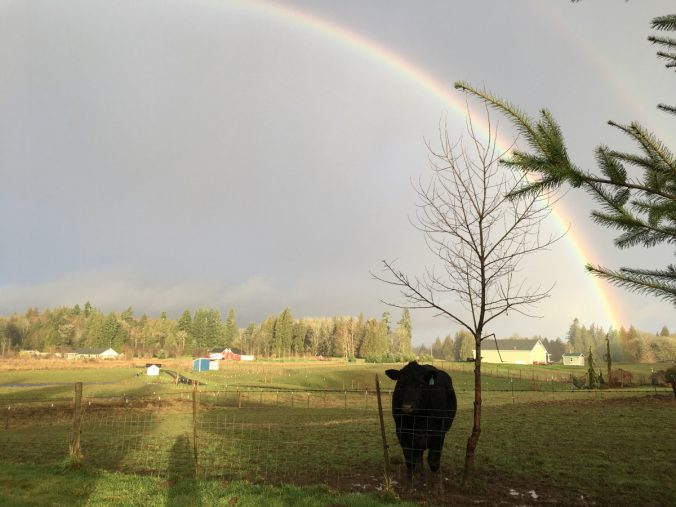Just wanted to take a moment to describe the program model I’m currently taking at Evergreen this quarter. It is a Student Originated Studies (SOS). How is this different than a normal program or an Independent Learning Contract (ILC)? Well its actually a kind of hybrid of the two. You still have to option to meet once a week as a class and discuss whatever it is you are doing the rest of the week (be it an internship, a research project, or some combination of the two) as well as have the opportunity to seminar on a common read with your class. But, the rest of the week you are totally free to fill with whatever it is you want to be learning about.

Pruning apple trees for practicum component of class
The SOS I’m taking this quarter is entitles “Food & Agriculture” so obviously a huge array of topics fit under that category. Some of the projects in the class are researching sustainable textile production/visiting local sheep and alpaca farms/learning to spin wool, an internship with the local Landtrust office (working to keep agricultural land in agriculture), an internship at Burnt Ridge Nursery (owned by an alum of the Practices of Organic Farming or POF program), and implementing a Food Forest onto the Organic Farm at Evergreen.
A component of our in-class days are seminars and practicums. Every week we alternate between the two. Practicums mean we get out on the Organic Farm and do things like apple tree pruning, hardy kiwi berry pruning, and various propagation activities. Seminars mean we all read a common book and roundtable on it. Some of the books we’ve read are Restoring Heritage Grains (Eli Rogosa), The Cooking Gene (Michael W. Twitty), and Letters to a Young Farmer (Stone Barns Center on Food & Agriculture). Many of these books contain recipes, which people will cook for class, so we often have a meal with the actual foods we subsequently talk bout.

Planting freesia corms at Thistlehook Internship
In terms of what I’m doing outside of class, my project is actually two-fold. I am doing an internship two days a week at Thistlehook Farm, a flower farm that is also owned by an alum of the POF program. He sells all of his flowers to the Seattle Wholesale Growers Market Cooperative. I’ve been doing a ton of propagation for him this quarter; from taking cuttings of blueberries and California bay to seeding ageratum and snapdragons and cerinthe to planting freesia corms in an unheated greenhouse. I’ve also field-planted cornus (dogwood) and Pieris japonica (Japanese Andromeda), and pruned elderberry, blueberry, and apricot. We also converted a stall in his garage into a greenhouse and are using that for all of our seedlings and cuttings!
The other part of my internship is an online course through Floret Farm, another flower farm up north in Mount Vernon, WA. This online workshop breaks down tips and tricks and how-tos for starting and running a small-scale flower farm and floral design business. Some topics covered include defining your goals, planning the farm, financing a farm, expenses associated with having a farm, how-tos/best practices for growing different crops/varieties, sales & marketing, and post-harvest handling/storage. It is an incredibly helpful resource for my future goal of having my own flower farm.
These two components combined are really working as a capstone project to my time at Evergreen, and preparing me for life after Evergreen as this is my last quarter before graduating. I’m so grateful for Evergreen having these broad topic SOS programs that allow students to do their own work and really delve into topics they are interested and passionate about. Additionally, SOS programs allow students to tie together all of their work at Evergreen in a really unique way.


Leave a Reply